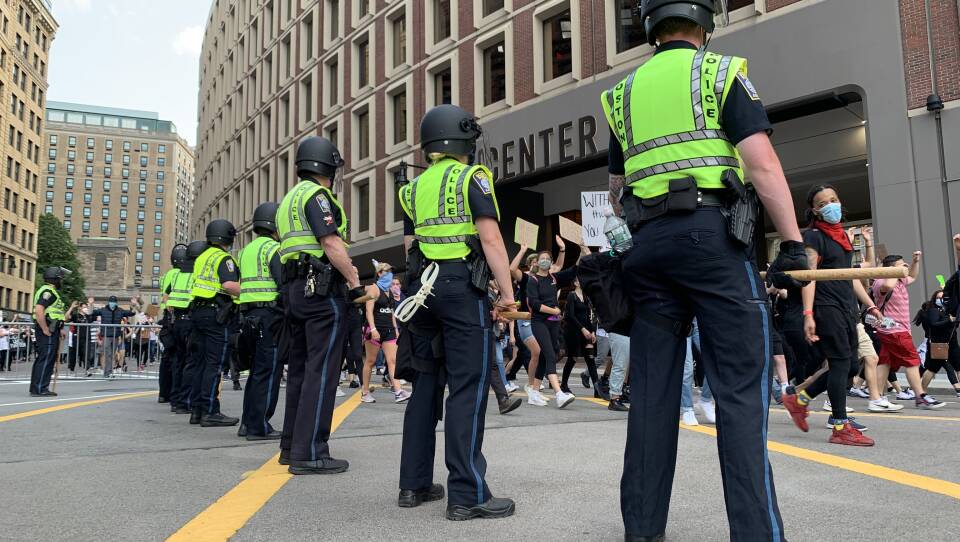The agency that regulates police training in Massachusetts is trying to finalize new rules when it comes to training of officers and recruits, as well as the use of force.
The Municipal Police Training Committee received increased jurisdiction and responsibilities under the landmark police reforms passed by the Baker administration. It last updated its training regulations in 2023, and said those are now due for additional updates . A recent state audit found the MPTC had numerous shortcomings in this area , including not ensuring all training academies followed a standardized curriculum or that recruit officer courses were taught by certified instructors.
The MPTC is also making minor revisions to its use of force regulations to bring those in line with regulations laid out by the Massachusetts Peace Officer Standards and Training Commission, known as POST, the agency that oversees police accreditation.
The MPTC held a virtual hearing on Friday to gather comments on both training and use of force. Only two people offered proposals for specific changes.
Lisa Butner, a former state trooper who now works for the public safety department at Tufts University, urged the committee to revisit medical standards for applicants. She said current standards are outdated and in violation of the Americans with Disabilities Act.
“The current standards are currently contradictory to ADA laws that specifically address the fact that an employer cannot deny an applicant with a disability for employment if the applicant can perform all the essential functions of the position for which he or she is applying with or without accommodations,” she explained.
Butner also questioned whether candidate qualifications are outdated.
“Have there been any studies to see if any groups are being disproportionately screened out from entering a police academy because of this mandate?” she asked. “I have been in the profession for over four decades, and I have never seen an officer run a half a mile, let alone a mile and a half.”
MPTC training academies already require benchmarks for student officers going through academies. Butner contends pre-screening benchmarks are thwarting recruitment. “Why are we erecting unnecessary barriers to prevent departments from selecting good candidates who have a sincere desire to serve their department?”
In response to the use of force regulation updates, Lynsey Legier, a staff attorney with the Massachusetts Society of the Prevention of Cruelty to Animals, asked the committee to consider more thorough training on animal cruelty investigations and how officers respond to animals perceived as dangerous.
“Ensure that use of force is included in model policies for law enforcement agencies [including] use of force relative to animals, deploying lethal force on animals, as well as non-lethal force,” she said at the meeting. “We hear from officers that they don’t receive this training in the academy. They don’t receive it as specialized training.”
Legier told the committee that in previous years, MPTC put together a three-hour training course to help officers with this training. “I think that was a good start. But certainly it is something that could use more programming in that area.”
The comments from the hearing will be offered to MPTC’s staff and oversight committee for consideration and debate. Once approved, the final version of the two new regulations will go into effect and be published in the Massachusetts Register .





